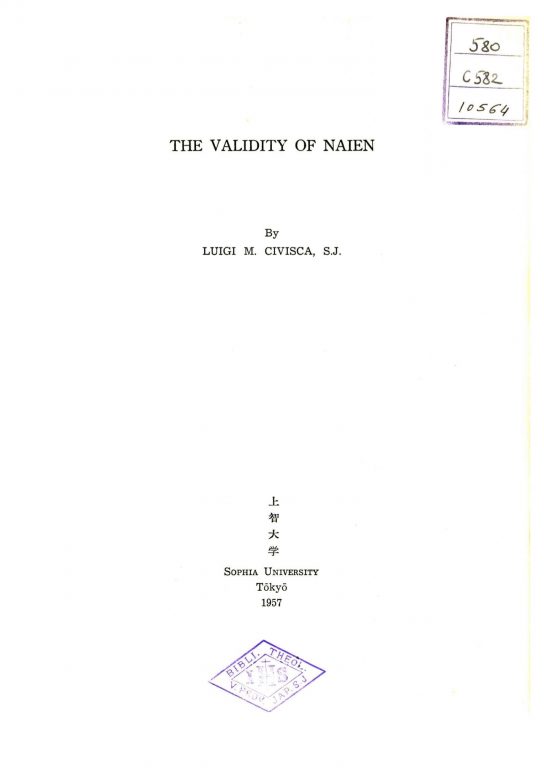The Validity of NaienLuigi M. Civisca
Monographs (1957) pp. 1–32
This essay enters abruptly into the middle of a juridical dispute among scholars who are fully acquainted with the problem it discusses and with all its details. At first, therefore, it may seem a little unattractive to those who are not familiar with the intricacies of civil and canon law. Yet, as it centers round a problem which is at the very basis of Japanese family life, it may be of some interest to students of Japanology also.
No one denies that the Meiji Restoration is a milestone in the history of Japan. Until this time, Japan, completely isolated from the rest of the world, had a social life governed only by her own internal tradition. This was particularly true of the institution of matrimony. This institution was considered as a contract between families rather than a private affair between individuals. The partners had very little to say in the whole arrangement. Willingly or unwillingly they had to conform to what was decided by their parents or by the family; and this decision was based upon consideration of the family rather than of the partners.
With the Meiji Restoration the government started to take the role of governing the institution of matrimony. While leaving untouched the structure of the traditional law, it introduced some norms from the codes of foreign countries. This created some confusion in the traditional institution regarding matrimony.
1957. 32 pages.
Paperback. [Out of print]
